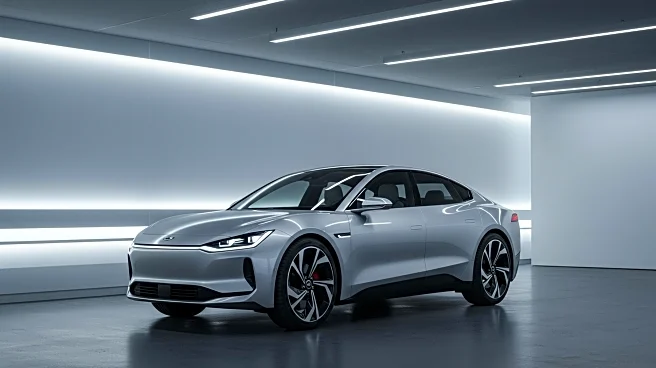What's Happening?
Ola Kaellenius, CEO of Mercedes-Benz, has publicly criticized the European Union's plan to ban CO2-emitting vehicles by 2035. In an interview, Kaellenius expressed concerns that the ban could lead to a collapse of the European car market, citing weak demand, competition from Chinese manufacturers, and disappointing electric vehicle sales. He argued for a more balanced approach to decarbonization, suggesting tax incentives and lower power prices at charging stations to encourage the transition to electric vehicles.
Why It's Important?
The EU's emissions ban is a critical component of its environmental strategy, aiming to reduce carbon emissions and promote sustainable transportation. However, Kaellenius's comments highlight the challenges faced by the automotive industry in adapting to these regulations. The potential impact on European carmakers, who are already facing competitive pressures, could be significant, affecting jobs and economic stability. The debate over the ban underscores the need for policies that balance environmental goals with economic realities, ensuring a viable transition for the industry.
What's Next?
The EU's emissions ban is set for review in the second half of 2025, providing an opportunity for stakeholders to reassess its feasibility and impact. Kaellenius's remarks may influence discussions among policymakers, industry leaders, and environmental groups as they consider adjustments to the plan. The automotive industry may push for alternative measures that support decarbonization while protecting economic interests. The outcome of the review could shape the future of transportation in Europe and set precedents for other regions considering similar policies.
Beyond the Headlines
The criticism from Mercedes-Benz reflects broader tensions between environmental objectives and economic interests. The transition to electric vehicles is a complex process, requiring infrastructure development, consumer acceptance, and technological advancements. The debate over the EU's emissions ban highlights the need for collaborative efforts to address these challenges, ensuring that environmental policies are both effective and economically sustainable. The discussion may also influence global approaches to emissions reduction, as other regions observe Europe's strategy and its implications.











